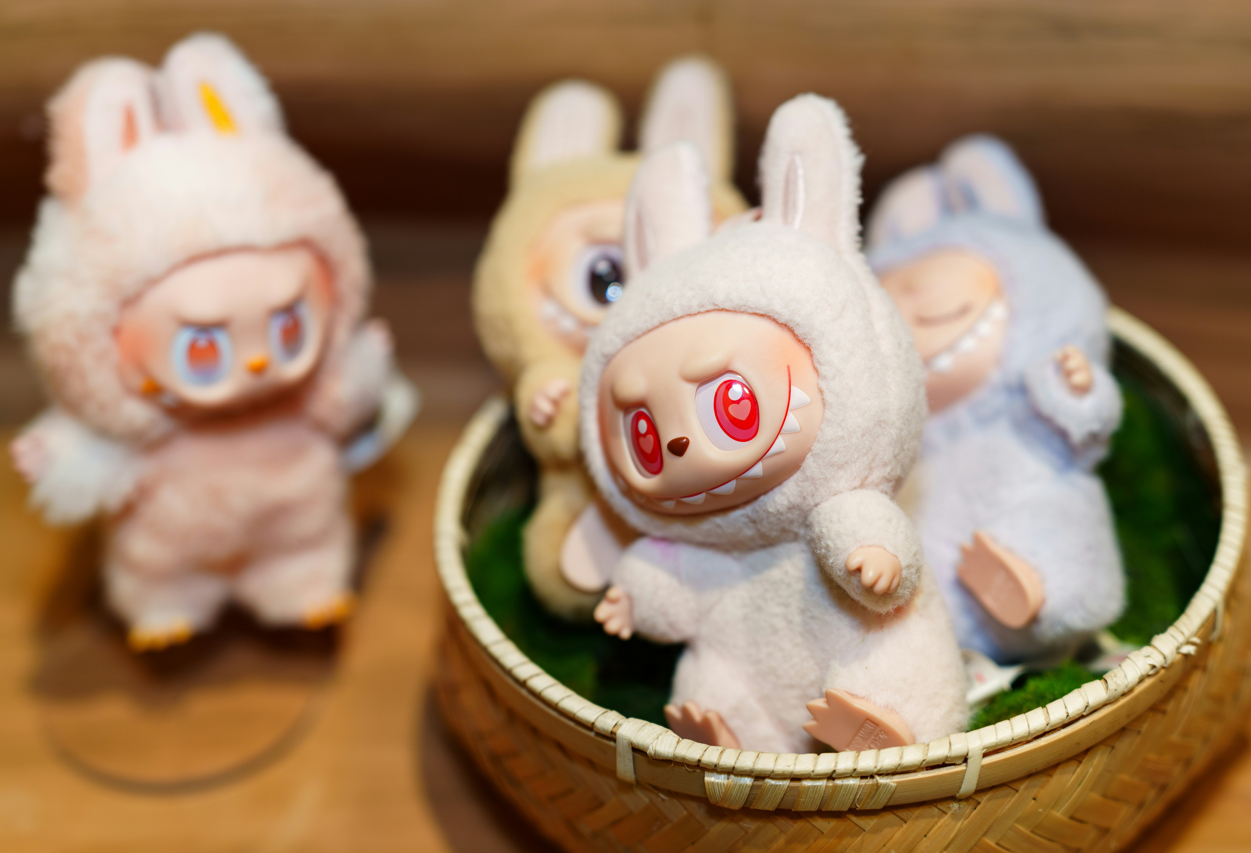‘I am the owner of the only 24 karat gold labubu’, a widespread meme trending on TikTok, a seemingly harmless joke, however this message demonstrates the overconsumption mindset promoted by social media.
The labubu, a scruffy looking monster keyring being attached to bags worldwide, slightly disturbing to look at, became popular seemingly out of nowhere as influencers rushed to acquire the latest status symbol. Then as quickly as the trend entered the scene, it became ridiculed as a symbol of hyper consumption culture. Enter the 24-karat gold labubu woman, creating satirical content claiming she owned the rarest labubus, when in fact she had poorly painted and made her own abominable labubus.
Labubu keyrings are not the only example of the overconsumption culture fuelled by TikTok in the last few years; take for example the Stanley cup craze. A reusable water bottle should be a symbol of sustainability, moving away from single use plastics and ‘disposable culture’. After all, the VSCO girls had their Hydro Flasks even before Stanleys were the mainstream water bottle (albeit another example of a microtrend, but at least this one had the positive intention of supporting the environmental cause of ‘saving the turtles’).
However, due to the online cult-like following of Stanley cups, every time a new design or style was released, the masses would descend on the shops to fight for the newest version, Hunger Games style. Surely the entire point of any reusable bottle is that you reuse it, (clue is in the name) and yet these consumers often own at least five different versions of the same reuseable cup, if not more, entirely defeating the purpose of sustainability and demonstrating the culture of excessive consumption created by social media.
The concept of the Birkin bag also fell victim to TikTok’s overconsumption trap, much to my dismay. The self-proclaimed ‘fashion girlies’ wanted to recreate the look of the Birkin bag, made for Jane Birkin, who only ever owned one of the bags at any given time, resulting in them looking lived in. In attempts to recreate this look, fashion influencers began decorating their new handbags with keyrings and ribbons, to make brand new, unused bags appear lived in, entirely missing the anti-consumerist standpoint Jane Birkin’s original bags had. Her mindset towards the bags was to invest in a high-quality piece, that would last a long time, reducing consumption and waste. She never even owned more than one of the bags at once, arguing that you could only ever use one bag at a time, and so there was no point.
As usual, TikTok entirely missed this anti-consumerist stance, and promoted buying new, poor-quality bags through TikTok shop and customising them, then using them until another trend came around, or the bag broke, due to its poor quality, resulting in waste and unsustainable consumption.

With today’s tendency to be ‘chronically online’ we are constantly fed consumerist ideals. You need to buy the newest item to be on trend; to complete your collection; to be happy. The accessibility of these items via online shopping, especially when it’s built into the app, as with TikTok shop, means viewers of this content can immediately purchase the newest trending commodity, very cheaply, resulting in poor quality goods that won’t last long, ending up in landfill and being unsustainable.
Furthermore, the excessive consumption of these products results in them becoming ‘cringe’, meaning even if the item doesn’t fall apart, the owner will dispose of the product as soon as the next trend occurs. Viewers are shamed for owning such consumerist items immediately after being encouraged to purchase them, creating a rapidly changing trend cycle and promoting an unsustainable model of consumption. As soon as labubus became a joke, someone placed one on Karl Marx’s grave, resulting in criticism of the consumerism created by the capitalist society, despite the fact that only weeks earlier, labubus were being sold en masse as something that everybody had to have.
So, when you are buying your new bag for university this year, perhaps consider sourcing it second hand, or using a bag your already own, to achieve the well-loved and authentic Birkin style. Thrift shops usually have a great, more affordable, selection, and you could be donating to a charitable cause in the process.
Sure, stay hydrated, but do you need to buy a new water bottle, or can you use one you already own that works perfectly well? And remember when doomscrolling through the (not so) subtle advertising on your ‘For You’ page, that buying a labubu, or whatever else is the newest trend, probably isn’t going to help you in the long run.
By all means partake in trends but remember that sourcing your clothes and products more ethically, as well as keeping them for longer could help you to achieve a more authentic personal style and move away from the unsustainable overconsumption ideals pumped at you through social media.
By Emilia Hollingdale, SGO Project Officer
 Sustainability
Sustainability Bethany Climpson
Bethany Climpson 398
398


